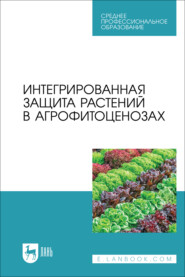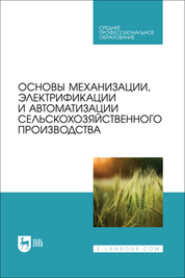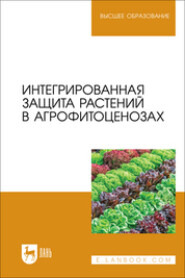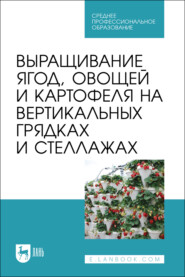По всем вопросам обращайтесь на: info@litportal.ru
(©) 2003-2024.
✖
Short-Stories
Настройки чтения
Размер шрифта
Высота строк
Поля
40
79:19 Dread. Reading of the first edition, "Her figure, her air, her features, – all, in their very minutest development, were those – were identically (I can use no other sufficient term), were identically those of the Roderick Usher who sat beside me. A feeling of stupor," etc.
41
80:16 Improvisations. Extemporaneous composition of poetry or music.
42
81:4 von Weber. The celebrated German composer (1786-1826).
43
81:20 Fuseli. An artist and professor of painting at the Royal Academy in London (1741-1825).
44
82:24 "The Haunted Palace." First published in the Baltimore Museum for April, 1839.
45
83:18 Porphyrogene. Of royal birth.
46
84:16 for other men. Watson, Dr. Percival, and especially the Bishop of Llandaff. See "Chemical Essays," Vol. V.
47
85:16 Ververt et Chartreuse. Two poems by Jean Baptiste Cresset (1709-1777).
48
85:17 Belphegor. Satire on Marriage by Machiavelli (1469-1527).
49
85:17 Heaven and Hell. Extracts from "Arcana Coelestia" by Swedenborg (1688-1772).
50
85:18 Subterranean Voyage of Nicholas Klimm. A celebrated poem by Ludwig Holberg (1684-1754).
51
85:19 Chiromancy. Palmistry applied to the future. Poe refers rather to physiognomy. The book was written by the English mystic, Robert Fludd (1574-1637).
52
85:19 Jean d'Indaginé and De la Chambre. Two continental writers of the sixteenth and seventeenth centuries respectively.
53
85:21 Tieck. A great German romanticist (1773-1853).
54
85:21 City of the Sun. A sketch of an ideal state by Campanella (1568-1639).
55
85:23 Directorium Inquisitorium. A detailed account of the methods of the Inquisition by Cironne, inquisitor-general for Castile, in 1356.
56
85:24 Pomponius Mela. Spanish geographer in the first century A.D. Author of "De Chorographia," the earliest extant account of the geography of the ancient world.
57
85:25 Oegipans. An epithet applied to Pan.
58
85:30 Vigiliae Mortuorum. No such book is known.
59
90:30 Mad Trist. No such book is known.
60
91:29 alarummed. Alarmed.
61
92:25 had fain. In the sense of was glad.
62
The Gold-Bug was first published in The Dollar Magazine in 1843. The story won a prize of one hundred dollars.
63
100:3 All in the Wrong. The title of an amusing comedy by Arthur Murphy (1730-1805).
64
100:4 Huguenot. French Protestants, many of whom settled in South Carolina.
79:19 Dread. Reading of the first edition, "Her figure, her air, her features, – all, in their very minutest development, were those – were identically (I can use no other sufficient term), were identically those of the Roderick Usher who sat beside me. A feeling of stupor," etc.
41
80:16 Improvisations. Extemporaneous composition of poetry or music.
42
81:4 von Weber. The celebrated German composer (1786-1826).
43
81:20 Fuseli. An artist and professor of painting at the Royal Academy in London (1741-1825).
44
82:24 "The Haunted Palace." First published in the Baltimore Museum for April, 1839.
45
83:18 Porphyrogene. Of royal birth.
46
84:16 for other men. Watson, Dr. Percival, and especially the Bishop of Llandaff. See "Chemical Essays," Vol. V.
47
85:16 Ververt et Chartreuse. Two poems by Jean Baptiste Cresset (1709-1777).
48
85:17 Belphegor. Satire on Marriage by Machiavelli (1469-1527).
49
85:17 Heaven and Hell. Extracts from "Arcana Coelestia" by Swedenborg (1688-1772).
50
85:18 Subterranean Voyage of Nicholas Klimm. A celebrated poem by Ludwig Holberg (1684-1754).
51
85:19 Chiromancy. Palmistry applied to the future. Poe refers rather to physiognomy. The book was written by the English mystic, Robert Fludd (1574-1637).
52
85:19 Jean d'Indaginé and De la Chambre. Two continental writers of the sixteenth and seventeenth centuries respectively.
53
85:21 Tieck. A great German romanticist (1773-1853).
54
85:21 City of the Sun. A sketch of an ideal state by Campanella (1568-1639).
55
85:23 Directorium Inquisitorium. A detailed account of the methods of the Inquisition by Cironne, inquisitor-general for Castile, in 1356.
56
85:24 Pomponius Mela. Spanish geographer in the first century A.D. Author of "De Chorographia," the earliest extant account of the geography of the ancient world.
57
85:25 Oegipans. An epithet applied to Pan.
58
85:30 Vigiliae Mortuorum. No such book is known.
59
90:30 Mad Trist. No such book is known.
60
91:29 alarummed. Alarmed.
61
92:25 had fain. In the sense of was glad.
62
The Gold-Bug was first published in The Dollar Magazine in 1843. The story won a prize of one hundred dollars.
63
100:3 All in the Wrong. The title of an amusing comedy by Arthur Murphy (1730-1805).
64
100:4 Huguenot. French Protestants, many of whom settled in South Carolina.

















